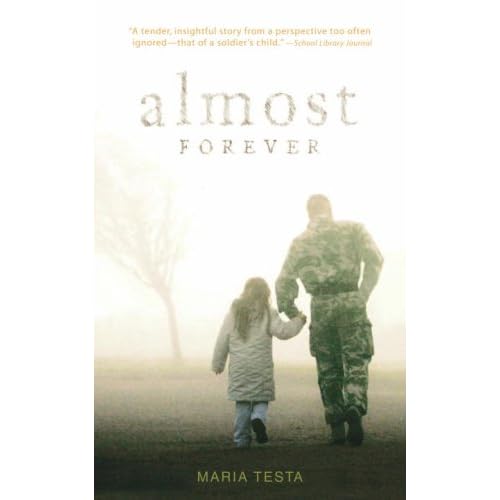 I was a huge reader as a child, and I think I related to the world at times more through books than my own experiences. For that reason, I am always looking for books to share on this blog, both as resources for military families and for the other 98 percent of us, who need a way to understand the experiences of military children.
I was a huge reader as a child, and I think I related to the world at times more through books than my own experiences. For that reason, I am always looking for books to share on this blog, both as resources for military families and for the other 98 percent of us, who need a way to understand the experiences of military children.A blog based on the novel, PENELOPE'S DAUGHTER, which is dedicated "to all the children left behind when fathers and mothers go off to war"
When my father, Odysseus, and his men sailed off to the Trojan War, they were confident their gods favored a quick victory. Instead, the siege of Troy lasted ten years. After Troy fell, the survivors made their way home to Sparta, Mycenae, Pylos, and elsewhere in the ancient Peloponnese. Neither my father nor any of his troops arrived home with the rest. We waited for years as the news grew worse. Odysseus was dead, we were told,or imprisoned, or, worst yet, he had married another woman and abandoned my mother Penelope, my brother Telemachus, and me.
If he is alive somewhere, his thoughts may wander to Penelope and Telemachus, but he won’t be thinking of me. I am the daughter he doesn’t know exists. Odysseus went off to the Trojan War when his son, Telemachus, was barely old enough to walk. His wife, Penelope, was a teenage bride, and is now a young wife, mother, and queen who has to try to rule Ithaca without him.
I was born seven months after he left. I am a hero’s daughter and a princess of his realm, but I have lived my entire life without a father. I’m nineteen now, and still waiting.
All over the world, and throughout history children grow up as I have. This website will focus on the children of those men and women who have gone off to fight America's wars, and provide information and resources for all who care about military families and want to help.
Friday, October 15, 2010
Almost Forever
 I was a huge reader as a child, and I think I related to the world at times more through books than my own experiences. For that reason, I am always looking for books to share on this blog, both as resources for military families and for the other 98 percent of us, who need a way to understand the experiences of military children.
I was a huge reader as a child, and I think I related to the world at times more through books than my own experiences. For that reason, I am always looking for books to share on this blog, both as resources for military families and for the other 98 percent of us, who need a way to understand the experiences of military children.
Thank you for the suggestion on this one. I will have to get it. Our lives are full of Military children as the authors of books for them, but my granddaughter could surely relate to this one. The picture on the front makes me feel the heart tears that we have for those we love. As the mother of an Army Sgt. and the grandma to his two children, it is a personal story as well. Thanks again
ReplyDeleteKathleen
It does look like a good one, Kathleen, and if you have others to suggest I'd like to hear!
ReplyDelete